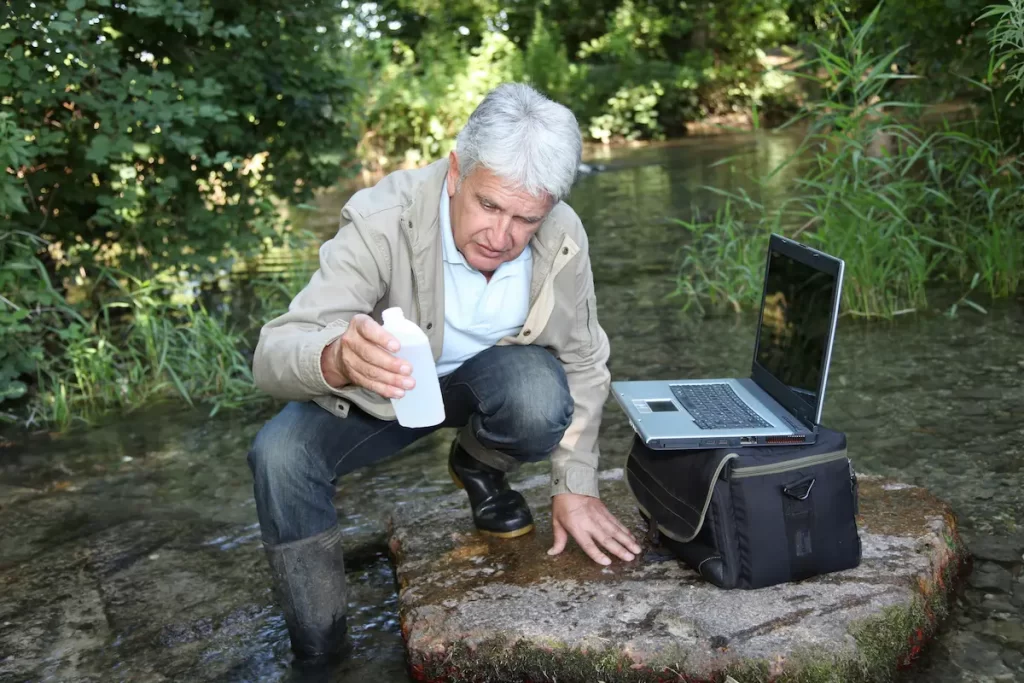Wildlife biology is an intriguing career that involves learning about animals in their natural habitats. Due to this description, many individuals see this career as a dream job full of fulfilling days with nature. Most people would love a job that includes hanging out in nature watching animals all day, but are these scientists actually happy?
Wildlife biologists seem to be very happy with their job! Due to the rigorous training and education involved in this job, the people within this field are passionate about science and wildlife which makes them well suited for the position. Even with the difficulties that come with working in wildlife biology, the scientists are very satisfied with their work.
There is much more to wildlife biology than just watching animals in remote locations. This career takes a lot of time and scientific practice to be done well. Keep reading as we go into the daily tasks of a wildlife biologist and various aspects of the job you may not be aware of.

Related Reading: How Do Wildlife Photographers Get So Close?
How Satisfied and Happy Are Wildlife Biologists?
Everyone wants to have a job they are excited to get up for in the morning. Many jobs have low reported satisfaction with their jobs, but this is not the case for a wildlife biologist. 77% of wildlife biologists report that they are satisfied with their job. This is a great number that shows the gratification people get from following their passions!
Since it can also be difficult to gain enough schooling and training to land a job in the biology field, people who pursue it often do this out of a passion for the subject or the job. Meaning that despite the struggle to get to their goal, wildlife biologists feel so strongly about their career that the work is worth it.
This satisfaction also comes from the work wildlife biologists produce. They often work for conservation efforts and all of the research and data collection goes to our better understanding of ecosystems. All this information led to us finding a way to coexist with surrounding ecosystems while working to preserve the land we live on. This is incredibly gratifying work for people who are passionate about wildlife as their efforts are helping the landscape.
Even though it might be tough work, wildlife biologists love what they do! Their love of science and wildlife suits them perfectly for researching everything you can imagine about wildlife habits.
How Much Do Wildlife Biologists Work?
Most wildlife biologists report usually working over 40 hours a week. This is due to the large amounts of data analysis, scientific reading, and fieldwork needed for the job. But this does depend on your education level, as the more you know there will likely be more work for you to do.
If you are a graduate student you can often have even more work hours than normal. Collecting field data for a dissertation can result in many 10-16 hour days! Luckily, this means by the time wildlife biologists start working they are already used to long days.
On average, Wildlife Biologists can make roughly $70,000 each year. But this comes after many years of schooling. Most wildlife biologists have either a master’s or P.h.D in their field in order to get a well-paid job. Although it is possible to get one with only a bachelor’s, it is very rare and not for great pay.
So after at least seven years of studying a wildlife biologist is ready to apply their knowledge to a real-world job! But it is not as easy as this as permanent jobs can be very difficult to land, even if you have a P.h.D. Oftentimes the more years you work in this field, the better you are paid and you can find more stable jobs. Due to this uncertainty, many wildlife biologists recommend extra consideration when considering this career path.
What Does a Day In Life Look Like for a Wildlife Biologist?
The daily life of a wildlife biologist may not be what you think. It is not like an accounting job, where you can generally expect the same schedule each day of the week. Wildlife biology jobs come in a whole lot of different ways.
Most people in this field, rarely go outside to collect data. With the accessibility of the internet, many different research topics can simply use what has already been collected. Meaning the scientist never really goes out and tracks down the animals they are studying.
Wildlife biologists that do have fieldwork often see long days full of nothing and tracking. One wildlife biologist Kelsey Bernard highlights this reality within her own life. On days when she is in the field for a project, she usually wakes up in a tent and makes some coffee. Then she spends most of her day hiking to the collection site and working through her procedures there.
But when she is not in the field, she is writing and researching from her computer. This scenario is the most common among wildlife biologists. Many spend their days reading research papers, analyzing data, and collaborating with other scientists. So despite the general idea that wildlife biologists spend all their time outside, many stays in and seem as if they are doing any other normal job!
What Kind of Tasks Do Wildlife Biologists They Perform?
Such as with scientific degrees, there is a very large range of what you could do as a wildlife biologist. Even within the two different areas of work, the field, and the office, there are different tasks to complete based on what you are studying and who you work for.
For example, some people can be science communicators. This job entails creating education and other communication resources in order to teach people about wildlife biology. The idea is to teach people about natural ecology with the hope it will help improve practices that will preserve natural land. Which includes creating this educational information to be posted on all kinds of mediums.
While other wildlife biologists are heavily involved in research, meaning they are constantly analyzing data and cross-referencing it with other completed research. These scientists’ daily tasks often involve reading long papers, collecting data points from various electronic locations, and assembling the information into charts and articles.
Now if you are actually in the field, your tasks get even more diverse. Depending on your study, you could be measuring migration patterns through tracks or collecting DNA through animal poop! Some wildlife biologists help place trackers on animals so that others in the field can use that data for studies. These tasks would include finding your animal, anesthetizing them, and putting the GPS tracker on.
As you can see there are a lot of different tasks to do as a wildlife biologist. It depends on the study and situation scientists find themselves in to determine what they do that day.
Conclusion
So just as with any other job, a wildlife biologist can be a lot different from what you expect. There is a lot more scientific work involved than just observing animals in the wild, and many of them spend most of their time sitting at a desk learning everything they can.
But the great news is that they are happy! The satisfaction most wildlife biologists feel from their job far overpasses their desire for a big salary. These scientists seem enriched by their work and proud of how far they have come to get there.
If you are considering becoming a wildlife biologist, it is important to decide what you want from your career. Even if you love animals, wildlife biology may not be for you if you do not like sleeping in tents or reading long research papers. But the people who do this job love it and wouldn’t trade it for the world.
